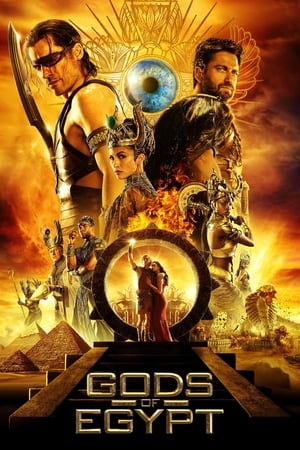
Gods of Egypt
Fantasy is very difficult to get right in films. Audience resistance is quite high, especially when it involves characters with difficult-to-remember names or diverse place names. Relating to a fantasy world of beasts and magic is often tricky for audiences who may prefer grounded, realistic drama. There are exceptions though – the worlds of Star Wars and Lord of the Rings captured public imaginations and the complex mass of stories and themes in Game of Thrones also attracted an audience. This fear of fantasy seems to have informed a slightly tentative approach in the writing and direction of Gods of Egypt. There are plenty of fantastic creatures present ranging from giant, vicious snake like creatures to Minotaurs in all but name, and an array of Egyptian gods. However, there has been avoidance of any of the cod Shakespearean dialogue that often permeates works of this type and an emphasis more upon realistic dialogue. This creates a needless tension between the intensity of the innovative visuals and the prosaic words dropping from the actors, a tension that is never resolved as the linear story progresses forwards but never upwards. The pleasures with this film arise mostly from the intensity of the visual experience. Every environment has been precisely designed, full of colour and dimension, looking very different from the landscapes seen in past films based on myth and history. The benefit of this is that there is always something to attract the eye, from great sky barges to rainbow lit waterfalls and massive monuments. Like all Alex Proyas’ films the visual ideas add weight and substance that the scripting sometimes fails to. It is however that narrative which brings the film down with a series of very deliberate events extrapolated in excessive detail, burdened by actors who at times look deathly uncomfortable in their roles. Only Geoffrey Rush, in a small but notable part, really excels with so many of the others not able to bring life to the dialogue as they intone in front of ever present green screens. In the end it is a pity that such a wonderfully conceived world at the visual level could not have been combined with a compelling story and acting.
